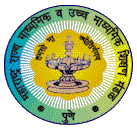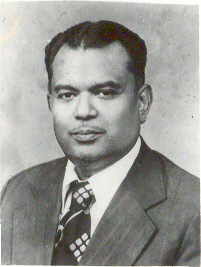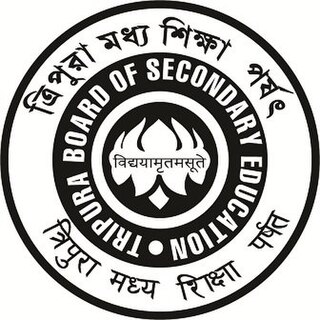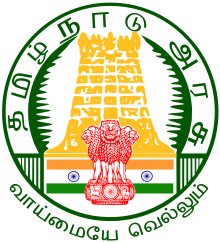
The Maharashtra State Board of Secondary and Higher Secondary Education is a statutory and autonomous body established under the "Maharashtra Secondary Boards Act" 1965. Most important task of the board, among few others, is to conduct the SSC for 10th class and HSC for 12th class examinations. It is the most popular education board in terms of enrollment in high school in India only after the Central Board of Secondary Education.

The West Bengal Council of Higher Secondary Education (WBCHSE) is an Indian autonomous examining authority, which is responsible for conducting examinations for standard XII for both government and private schools affiliated to this board. It came into existence in 1975. It is responsible for improvement and promotion of education in the state. WBCHSE conducts the West Bengal Higher Secondary Examinations each year, for which more than 8 Lakh students appear across the state.

The Directorate of Government Examinations was formed as a separate directorate in India in February 1975. Prior to the formation of Directorate Of Government Examinations, the then DPI/DSE was the ex-officio commissioner for Government exams and the department was having its office at Madras only. The first secondary school leaving certificate exam was conducted in the year 1911. This directorate started conducting the following major exams from the year noted against each of them in addition to the various examination.
Egmore is a neighbourhood of Chennai, India. Situated on the northern banks of the Coovum River, Egmore is an important residential area as well as a commercial and transportation hub. The Egmore Railway Station was the main terminus of the Madras and Southern Mahratta Railway and later, the metre gauge section of the Southern division of the Indian Railways. It continues to be an important railway junction. The Government Museum, Chennai is also situated in Egmore. Other important institutions based in Egmore include the Government Women and Children's Hospital, the Tamil Nadu State Archives and the Tamil Nadu Archaeology Department. The Wesley Church, Egmore is the oldest church of the region.
The Secondary School Leaving Certificate is a certification obtained by a student on successful completion of an examination at the end of study at the secondary schooling level in India. The SSLC is obtained on passing the grade 10 public examination, which is commonly referred to as 'class 10 board examinations' in India. SSLC is a common eligibility examination popular in many states in India, especially Kerala, Karnataka, and Tamil Nadu. The SSLC is also called Secondary School Certificate (SSC) in Andhra Pradesh, Telangana, Maharashtra and also as High School Certificate (HSC) in Madhya Pradesh and also as Matriculation in many states of India.
Higher Secondary Certificate (HSC), Higher Secondary School Certificate, Higher Secondary Education Certificate (HSEC) or Intermediate Examination is a secondary education qualification in Bangladesh, India and Pakistan. It is equivalent to the final year of high school in the United States and A level in the United Kingdom.

Harris Sam Sahayam Lawrence was an Indian educationalist born in Nagercoil, Tamil Nadu.
Chennai is home to many educational and research institutions. IIT Madras, located in South Chennai is considered as the premier centre of engineering education in India. Anna University and the University of Madras are the oldest state owned universities which are ranked among the best universities in India. The College of Engineering, Guindy and Madras Institute of Technology, which are the constituent college of Anna University along with Alagappa College of Technology are the pioneer institutes of engineering education in India. Some of the oldest medical colleges India, the Madras Medical College (1835) and Stanley Medical College (1938) are located in the city. Notable, liberal arts colleges in the city include Loyola College, Madras Christian College, Presidency College, Stella Maris College, Women's Christian College and Ethiraj College for Women.
As per the 2011 census of India, Andhra Pradesh has an overall literacy rate of 67.35%, significantly lower than the overall national average of 74.04%. Among the Indian states and union territories, it stands at 32nd position. There were a total of 29,859,982 literates: 16,549,514 males and 13,310,468 females. In terms of district-wise literates, united East Godavari has the most with 3,348,077 and united Vizianagaram has the least with 1,238,388. The government also implements fee reimbursement scheme for the economically backward sections of the state.

Tamil Nadu is one of the most literate states in India. The state's literacy rate is 80.33% in 2011, which is above the national average. A survey conducted by the Industry body Assocham ranks Tamil Nadu top among Indian states with about 100% Gross Enrollment Ratio (GER) in primary and upper primary education.

In India, the Department of General Education is the Government of Kerala's body for school education. Founded in 1995, The department administers school education from pre-primary level to the higher secondary level and teacher training the department is in charge of conducting Secondary School Leaving Certificate examinations in Kerala State. Secondary School Leaving Certificate examinations are usually held in March and results are announced on April or May.
The Tamil Nadu Public Service Commission (TNPSC) is a government body of the state of Tamil Nadu, India, responsible for the recruitment of candidates for various state government jobs through competitive examinations. It is the successor of the Madras Service Commission, which came into being under an Act of the Madras Legislature in 1929 and was the first Provincial Public Service Commission in India. It adopted its current name in 1970. TNPSC operates under Articles 315 to 323 of Part XIV of the Constitution of India.

The Department of Agriculture and Farmers' Welfare one of the departments of Government of Tamil Nadu.

The Department of Health and Family Welfare is one of the departments of Government of Tamil Nadu and is responsible for ensuring access to basic public health services in the state.

The Department of Higher Education is one of the departments of Government of Tamil Nadu. Established in 1997, the department is responsible for formulating policies and regulations for higher education in the state.

Tripura Board of Secondary Education (TBSE) is a board of school education in the state of Tripura, India. Currently Dr.Bhabatosh Saha is the president of TBSE.It is a state agency of the Government of Tripura which is responsible for the promotion and development of secondary education in the state. Most of the public schools of the state follow the TBSE system.
Directorate of Government Examinations is an independent department functioning under ministry of Secondary Education, Government of Telangana. The Department is responsible for conducting the SSC/OSSC Public Examinations and a number of minor examinations as given below.

The Department of Handlooms, Handicrafts, Textiles and Khadi is one of the departments of Government of Tamil Nadu.

The State Board of School Examinations (Sec.) & Board of Higher Secondary Examinations, Tamil Nadu is recognized by State Common Board of School Education. this board in located in chennai, is a statutory and autonomous body established under the Government of Tamil Nadu, Act 8/2010 Uniform System of School Education.







